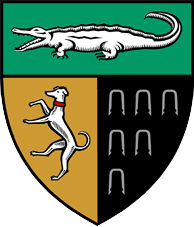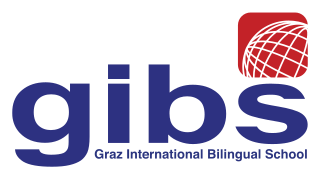Abitur, often shortened colloquially to Abi, is a qualification granted at the end of secondary education in Germany. It is conferred on students who pass their final exams at the end of ISCED 3, usually after twelve or thirteen years of schooling. In German, the term Abitur has roots in the archaic word Abiturium, which in turn was derived from the Latin abiturus.

A promenade dance or promenade, commonly called a prom, is a dance party for high school students. It may be offered in semi-formal black tie or informal suit for boys, and evening gowns for girls. This event is typically held at or near the end of the school year. There may be individual junior and senior proms or they may be combined.
Doctor of Medicine is a medical degree, the meaning of which varies between different jurisdictions. In the United States, and some other countries, the M.D. denotes a professional degree. This generally arose because many in 18th-century medical professions trained in Scotland, which used the M.D. degree nomenclature. In England, however, Bachelor of Medicine, Bachelor of Surgery (M.B.B.S.) was used: in the 19th century, it became the standard in Scotland too. Thus, in the United Kingdom, Ireland and other countries, the M.D. is a research doctorate, honorary doctorate or applied clinical degree restricted to those who already hold a professional degree (Bachelor's/Master's/Doctoral) in medicine. In those countries, the equivalent professional degree to the North American, and some others' usage of M.D. is still typically titled Bachelor of Medicine, Bachelor of Surgery.

Yale Law School (YLS) is the law school of Yale University, a private research university in New Haven, Connecticut. It was established in 1824. The 2020–21 acceptance rate was 4%, the lowest of any law school in the United States. Its yield rate of 87% is also consistently the highest of any law school in the United States.
Richard Henry Bolt was an American physics professor at MIT with an interest in acoustics. He was one of the founders of the company Bolt, Beranek and Newman, which built the ARPANET, a forerunner of the Internet.
A medical school is a tertiary educational institution, professional school, or forms a part of such an institution, that teaches medicine, and awards a professional degree for physicians. Such medical degrees include the Bachelor of Medicine, Bachelor of Surgery, Master of Medicine, Doctor of Medicine (MD), or Doctor of Osteopathic Medicine (DO). Many medical schools offer additional degrees, such as a Doctor of Philosophy (PhD), master's degree (MSc) or other post-secondary education.
A Master of Engineering is a professional master's degree in the field of engineering.

Twelfth grade is the twelfth and final year of formal or compulsory education. It is typically the final year of secondary school and K–12 in most parts of the world. Students in twelfth grade are usually 17–18 years old. Some countries have a thirteenth grade, while other countries do not have a 12th grade/year at all.
In New York State, Regents Examinations are statewide standardized examinations in core high school subjects. Students were required to pass these exams to earn a Regents Diploma. To graduate, students are required to have earned appropriate credits in a number of specific subjects by passing year-long or half-year courses, after which they must pass at least five examinations. For higher-achieving students, a Regents with Advanced designation and an Honors designation are also offered. There are also local diploma options.
Guy Jacob Swope was an American teacher, accountant, and Democratic politician. His career included one term as a representative in the 77th United States Congress, serving as a director in the United States Department of Interior under Franklin D. Roosevelt, and serving for a brief period as acting governor of Puerto Rico in 1941. He also served in the United States Naval Reserve, Military Government Branch, where he attained the rank of Commander.

A Hauptschule is a secondary school in Germany, starting after four years of elementary schooling (Grundschule), which offers Lower Secondary Education according to the International Standard Classification of Education. Any student who attends a German elementary school can go to a Hauptschule or Gesamtschule, while students who want to attend a Realschule or Gymnasium need to have good marks in order to do so. The students spend five to six years at the Hauptschule, from 5th to 9th grade. They finish around age 15 to 17.

In various European countries, student caps of different types are, or have been, worn either as a marker of a common identity, as is the case in the Nordic countries, or to identify the wearer as a member of a smaller body within the larger group of students, as is the case with the caps worn by members of German Studentenverbindungen, or student groups in Belgium.
Berufsoberschule is an optional part of the German education system, and is an additional way to be allowed at university for students who didn't get an Abitur at a Gymnasium.

The International School of Düsseldorf e.V. (ISD) is a nonprofit, independent, coeducational day school located in Kaiserswerth, Germany, a historic suburb of Düsseldorf. (A)ISD was founded in 1968 as the American International School of Düsseldorf, an English language school to meet the needs of non-military expatriate families. In 1977, it became the 65th school worldwide authorized to award the International Baccalaureate (IB) diploma. In 1986, the school changed its name to the International School of Düsseldorf.

The Ukrainian Catholic University is a Catholic university in Lviv, Ukraine, affiliated with the Ukrainian Greek Catholic Church. The Ukrainian Catholic University (UCU) was the first Catholic university to open on the territory of the former Soviet Union. The university frequently has the highest external independent evaluation scores of any Ukrainian university. and 2023,

The Graz International Bilingual School (GIBS) is an Austrian bilingual (English/German) university preparatory semi-independent charter school Gymnasium in Graz, Austria. The school mainly focuses on languages, offering German, English, Russian, Latin, French and Spanish. Students graduate with the Austrian Matura, the IB Diploma or with both, assuming that they meet the criteria necessary.
The Taego Order or Taego-jong is the second largest order in Korean Seon, the Korean branch of Chan Buddhism.

Simultaneous recruiting of new graduates or periodic recruiting of new graduates is the Japanese business custom in which Japanese companies hire new university graduates en masse. This custom was practiced in South Korea until a 2010 age discrimination law banned the practice in South Korea. In 2018 the Japan Business Federation (Keidanren) announced that its 1,600 member companies, which represent a large portion of Japan's big business companies, would no longer be required to follow the custom from 2020 onwards.
The Faculty of Engineering and Health Management (ILIS) also Institut Lillois d'Ingénierie de la Santé is part of the University of Lille. It is allowed to deliver bachelor's and master's degrees in Health Sciences. The ILIS lays a special emphasis on students acquiring a broad range of professional skills and work experience during their years of study and before graduating. In essence quite close to the German model of University of Applied Sciences or Fachhochschule, the institute is keen to let its students accumulate work experience so as to allow them a chance to compete with engineer and business schools on the job market. The core curriculum focus on current healthcare issues such as elderly care, hospital quality management, nutrition, environment, clinical research and sales of drugs and medical devices.
The Mittlere Reife is a school-leaving certificate in Germany that is usually awarded after ten years of schooling. It is roughly comparable with the British GCSE.









